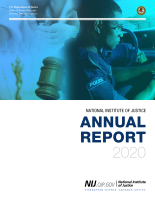Intuitive Pathways into Racist Beliefs
Journal
Emotions and Society
Date Published
June 2023
Agencies
NIJ-Sponsored
Publication Type
Research (Applied/Empirical)




